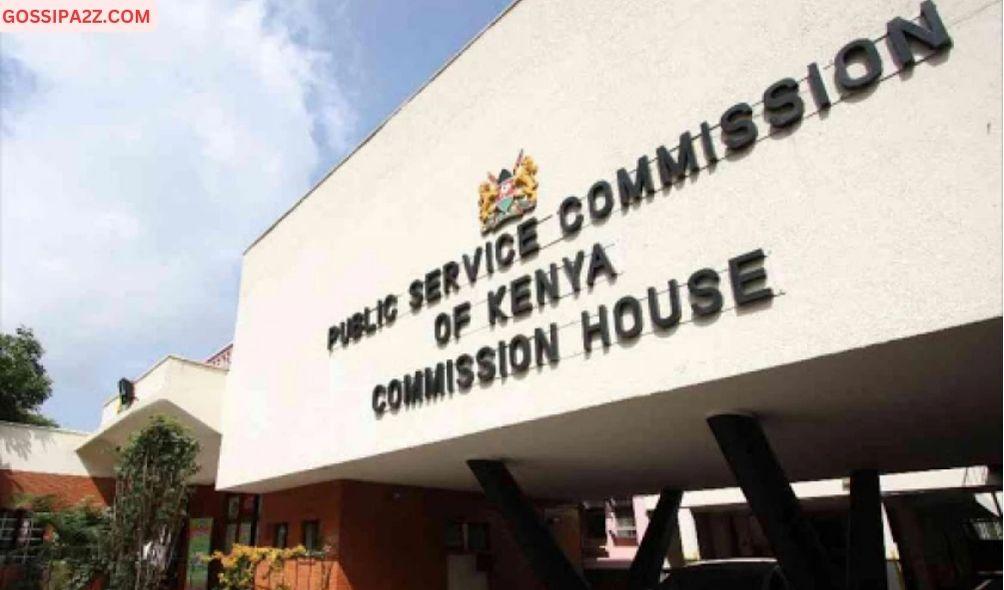Kikuyu, Kalenjin Still Hold Majority Of Public Service Jobs: PSC
Article 232 of the 2010 constitution demands that the public service must be representative of the diverse Kenyan communities with adequate and equal opportunity in appointment, training, and growth at all levels of the public service not leaving behind persons with disabilities.
However, year in and year out, the report of the Public Service Commission (PSC) continues to display evidence of what could be termed politics of ethnicity and exclusion.
In the latest report covering the 2022/2023 financial year, PSC avers that out of the 46 ethnic communities recorded in Kenya, 35 out of 44 had normal representation in the public service.
However, some had served up a bigger chunk of the cake.
Once again, the Kikuyu and Kalenjin communities topped the charts classified as grossly overrepresented meaning the numbers exceeded their recorded national size, by a quarter, followed closely by the Kisii and Luo communities termed as overrepresented.
The Maasai, Turkana, Luhya, and Mijikenda on the other hand did not form part of those with normal representation as according to PSC statistics they were underrepresented.
The Kenyan Somali community whose influence is being felt in many parts of the country was still however yet to hit the mark being classified as grossly underrepresented…
At the bottom of the barrel is the Kenyan American and Dahalo communities who are not represented in the public service.
The report also sounded an alarm over the poor representation of persons with disabilities as the 5% threshold was yet to be met in various government entities, the report is proposing the development of a time-bound affirmative action program to achieve the goal by 30th June this year.
ALSO READ:
- Why Money Collected From Tourists Was Banked in Swiss Accounts – Gov’t
- Hanna Cheptumo Says Her Family Is Worth Ksh.420 Million During Cabinet Vetting
- Ruto’s Gender CS Pick Blames Femicide on ‘Greedy Women Chasing Money’ — Claims Education and Independence Could Stop the Killings
- Kelvin Kiptum’s Father Demands Justice and Compensation from President Ruto
- Fuel Prices Drop in Kenya: EPRA Announces New Rates for April 2025
The commission also reviewed non-competitive appointments made in the 2022/2023 financial year which saw a little over 1000 officers recruited, 10 of these representing a paltry 0.8 percent being persons with disabilities.
The top communities representing between 21.8 percent and 2.1 percent are the Kalenjin, Kikuyu, Luo, Luhya, Kamba, Meru, Kisii, Maasai, Taita, and Mijikenda.
The report further shows there were 250 officers appointed as personal staff in the office of the deputy president and advisers to cabinet secretaries, the breakdown of the communities of origin is not however shared.
It is also noted that state corporations and sagas accounted for the highest number of officers recruited non-competitively at 466 followed by ministries and state departments with 290 officers.
Noting that many organizations were yet to appropriately grasp the principle of non-competitive recruitment which was now prone to abuse, PSC recommends that all public organizations comply with the requirement of fair competition and merit.
The issue of inclusion has been a hot political subject, and despite President William Ruto constantly stating that his administration will not discriminate against any part of the country irrespective of its political choices it is his deputy’s shareholding remarks that dominate conversations as it insinuates that government-friendly communities will be given the utmost priority.
Kikuyu, Kalenjin Still Hold Majority Of Public Service Jobs: PSC
